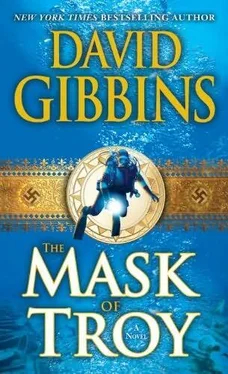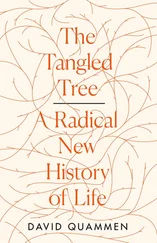David Gibbins - The Mask of Troy
Здесь есть возможность читать онлайн «David Gibbins - The Mask of Troy» весь текст электронной книги совершенно бесплатно (целиком полную версию без сокращений). В некоторых случаях можно слушать аудио, скачать через торрент в формате fb2 и присутствует краткое содержание. Жанр: Триллер, на английском языке. Описание произведения, (предисловие) а так же отзывы посетителей доступны на портале библиотеки ЛибКат.
- Название:The Mask of Troy
- Автор:
- Жанр:
- Год:неизвестен
- ISBN:нет данных
- Рейтинг книги:3 / 5. Голосов: 1
-
Избранное:Добавить в избранное
- Отзывы:
-
Ваша оценка:
- 60
- 1
- 2
- 3
- 4
- 5
The Mask of Troy: краткое содержание, описание и аннотация
Предлагаем к чтению аннотацию, описание, краткое содержание или предисловие (зависит от того, что написал сам автор книги «The Mask of Troy»). Если вы не нашли необходимую информацию о книге — напишите в комментариях, мы постараемся отыскать её.
The Mask of Troy — читать онлайн бесплатно полную книгу (весь текст) целиком
Ниже представлен текст книги, разбитый по страницам. Система сохранения места последней прочитанной страницы, позволяет с удобством читать онлайн бесплатно книгу «The Mask of Troy», без необходимости каждый раз заново искать на чём Вы остановились. Поставьте закладку, и сможете в любой момент перейти на страницу, на которой закончили чтение.
Интервал:
Закладка:
‘You been on operations like this one before? I mean, to one of these places?’
‘A week ago Corporal Lewes and I were the first Allied personnel into a Nazi prison near Sell. Torture chambers, guillotines. Political prisoners, mainly. Pretty bad, eh, Jock?’
‘Makes you realize what we’re fighting for, sir,’ Lewes replied.
Mayne glanced back at Stein. ‘I take it you know what’s been going on out here? I don’t mean the prisons. That’s grim, but predictable. I mean the camps.’
‘When I was with the BBC, we broadcast the Soviet reports from Majdanek, the camp the Red Army liberated last July in Poland. The whole Nazi state was based on slave labour. Most of the factories, the munitions works, you name it. There were big area camps for labourers, and satellite camps at particular factories and installations. The aerial photos for the one we’re heading towards show an opening in the forest the size of a football field with a row of barracks and huts. You can’t see anything in the surrounding woods, but they could conceal a bunker or underground storage facility. The Nazis looted huge amounts of art and antiquities and hid them away. This might be one of those places. That’s why I’m here.’
‘Something a lot worse than slave labour has been going on,’ Mayne said, shouting again as Lewes geared down and then revved up around a pothole. ‘My SAS friend said he’d been into a camp near Bergen a couple of days ago, a place called Belsen. Just up the road from here. Frightful scenes, corpses everywhere. He said survivors had been force-marched from those places in Poland, brought here to work on clearing bomb damage in the cities. But after the Allies crossed the Rhine and broke through into Germany, the prisoners got dumped in these camps. Mass starvation, disease. Just so you know. We might see some of that today.’
‘We’ve just been following a whole truckload of medical supplies,’ Stein replied. ‘The DP organizations, for managing displaced persons, have been preparing for the refugee problem for several years now. They can deal with it.’
‘Let’s hope so.’ Mayne turned and looked at the road ahead. The rumble of artillery from the front line had receded, no longer audible above the roar of the jeep. The line of trees was only a couple of kilometres away now, but still seemed like a distant mirage. It was as if they were crossing some kind of empty quarter, a bleak, monotonous landscape that seemed to go on for ever. He suddenly wished it would stay that way. He wanted monotony. He wanted oblivion. He desperately needed sleep. He felt a yawning emptiness in the pit of his stomach. He had been feeling that a lot lately. He knew it was his frayed nerves, a fear of what every moment ahead might hold, a fear that for him the war might never end. It was as if he knew there was something still to come in the unravelling horror, in his own role in it, something his instinct told him. And as a soldier who had survived five years of war when almost all his friends had not, he had learned to trust his instinct, to rely on it. That was the rub.
He reached up and put his hand on his upper tunic pocket, which held the notebook, the passages of Homer he had carefully transcribed that afternoon with Hugh, on the mountainside above Mycenae. It had been the summer of 1938, the end of his second year as an undergraduate. They had scrambled down the slope to the ancient grave circle, and had sat reading Heinrich Schliemann’s account of uncovering the mask of Agamemnon. He remembered the fire it had kindled inside him. Then there had been the conversation with the old foreman who had known Schliemann, who had seen what happened that night when Schliemann and Sophia had stolen up to the citadel, when they had raised that mask. It had been his secret with Hugh, their pact. After graduating, they had been going to find it, to uncover what Schliemann had hidden. They were going to be a team. He was going to be the archaeologist and explorer, with Hugh in the library delving and researching and sending him on ever more quests, above all to solve the mystery they had heard about that extraordinary evening on the slopes of Mycenae.
All that had seemed a lifetime ago. And then this morning at HQ, those fleeting few minutes with Hugh. That drawing, made by the girl in the camp. Hugh had described it to him, then before the briefing he had unfolded the drawing and glanced at it while Lewes was fuelling the jeep. It could be coincidence. That symbol was hardly unusual out here. But not that way round. And not in those colours. Exactly as the foreman on the excavation had described it. He remembered Hugh’s face. It had been flushed, feverish. He wondered whether the malaria had caught up with him again. He wondered what his own face looked like. It made him wish he could cry. But they had stared at each other, suddenly excited, forgetting the war for a few seconds. It was just possible. And now Stein was suggesting that this camp might contain a secret bunker. Mayne twisted around, wincing as he jarred his shoulder. ‘Just out of curiosity. Have you MFAA chaps had any luck with stolen antiquities? What about the Trojan treasure of Heinrich Schliemann? It was a bit of a passion of mine before the war. What might have happened to it.’
‘What did you say?’ Stein stared back at Mayne.
‘Schliemann’s treasure. King Priam’s treasure, from Troy. And whatever Schliemann and his wife might have secreted away from the royal graves at Mycenae.’
‘What do you know about that?’ Stein spoke sharply.
‘I worked on an excavation at Mycenae just before the war. With the British School of Archaeology at Athens. After Oxford I was going to become an archaeologist. We all heard the rumours that Schliemann had spirited stuff back to Germany.’
‘I know the story, but I don’t know anything more about it.’
Mayne grunted, and turned to face forward again as the jeep sped on. King Priam’s treasure. He had last thought about those passages from Homer on leave in Naples, almost a year ago, recuperating from his wound, sitting by the steaming fumaroles of Aornos, the fabled entrance to the underworld. He had wanted to see where the Trojan hero Aeneas had descended, where he had gone to hell and come back. But he had not read the passages then, and had returned to the crucible of war after that. Perhaps now those lines would help to assuage the emptiness he felt. The fall of Troy seemed to be happening all around him, had been happening for as long as he could remember. He had witnessed awful scenes of destruction, of indiscriminate death, men, women, children. He had been part of it. Maybe Homer would show him what he needed to see, help him make sense of the horror that had engulfed the world. Or maybe Homer would seem vapid, no longer meaningful, all talk of heroes and honour and pride. He felt the notebook in his pocket again. He would find somewhere to read it, later today perhaps. He took a deep breath. Lewes glanced at him, then nodded down the road. Lewes knew how close to the edge he was. ‘Up ahead, sir. I can see the roadblock.’
‘Right.’ Mayne steeled himself. They were coming to a junction with another road that ran parallel to the line of the woods, about a kilometre out from it. The road they were on continued beyond the junction toward the treeline. He noticed a kind of grey pall above the forest, like a rising mist, that kept the morning sunlight from streaming in. That was why the place looked so dark, forbidding. There must be a fire somewhere inside. They drew up to the junction. Four jeeps blocked the access routes, and Bren guns on bipods had been set up covering each road. A large sheet of canvas painted with the Allied white star recognition symbol had been laid on the adjacent field. Tactical Air Force might not have been told about covert intelligence missions, but they would have been told about the surrender of the camp. A couple of dozen soldiers had taken cover in the surrounding ditches, rifles at the ready. Mayne saw the shoulder flashes of the 66th Anti-Aircraft Regiment, an artillery unit that had been used as reserve infantry since the destruction of the Luftwaffe over the past weeks.
Читать дальшеИнтервал:
Закладка:
Похожие книги на «The Mask of Troy»
Представляем Вашему вниманию похожие книги на «The Mask of Troy» списком для выбора. Мы отобрали схожую по названию и смыслу литературу в надежде предоставить читателям больше вариантов отыскать новые, интересные, ещё непрочитанные произведения.
Обсуждение, отзывы о книге «The Mask of Troy» и просто собственные мнения читателей. Оставьте ваши комментарии, напишите, что Вы думаете о произведении, его смысле или главных героях. Укажите что конкретно понравилось, а что нет, и почему Вы так считаете.












